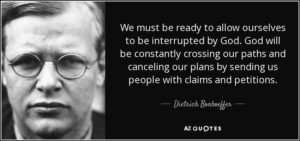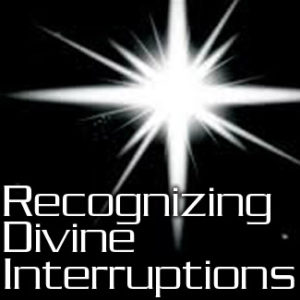About a week ago, I received a note from someone that I knew in Philadelphia. Towards the end of an essay he included the words below; they will be always very special because they speak to me of an openness to God that I hope I will never, never lose both in personal and professional life.
I want to be this “open” in pastoral conversation, worship, preaching and weddings!
I think of Alan, the priest who led midweek prayer services at an Episcopal church near my workplace. The service Alan led came directly from the Book of Common Prayer’s pages. Week to week, the order of its elements never varied; prayer texts changed only with the liturgical seasons; the celebration of Holy Communion was dependably familiar.
But every so often, as he stepped behind the altar to speak his next appointed sentences, Alan would pause, cock his head to one side, take a breath, and say, “You know, at this point, I’m supposed to say… but it occurs to me…”—and then he’d repeat a phrase from Scripture that had struck him in a new way, or recite a line from a hymn or poem, or offer a completely spontaneous word of empathy or encouragement.
Alan’s “interruptions” never lasted long, and he didn’t make them so often that they became distracting or annoying. I found them simple and direct manifestations of God’s presence—not overpowering flames, but heartening flickers, of God’s glory, that led me to sing, within my heart, “Yes, God is good!”
True worship won’t always leave us feeling “happy and content,” as the Israelites felt after the Temple dedication (7:10). But true worship will always present us with “the goodness the LORD [has] shown… to his people” (7:10)—to us. So when we worship, may God give us the expectation that we will see fire!


